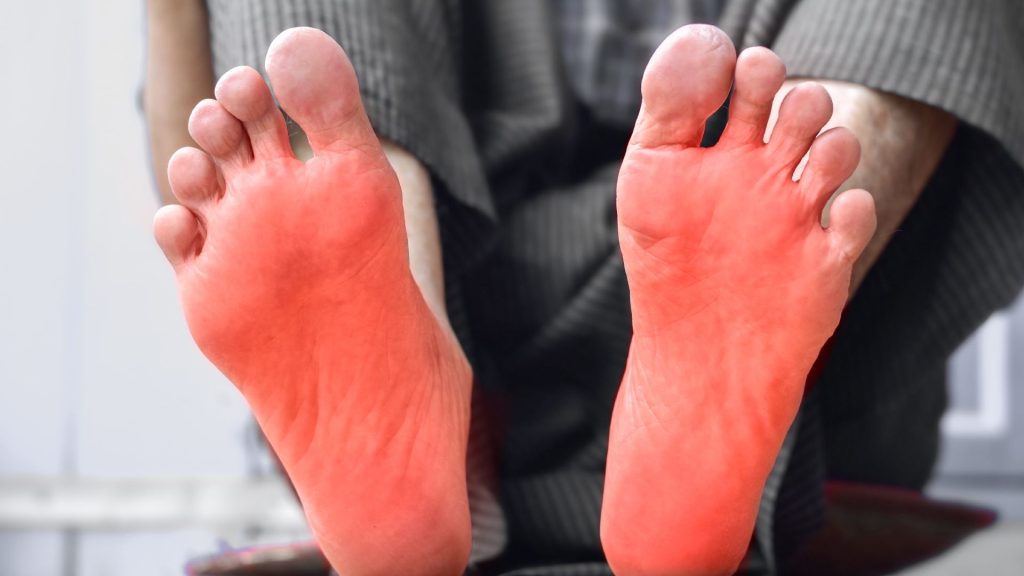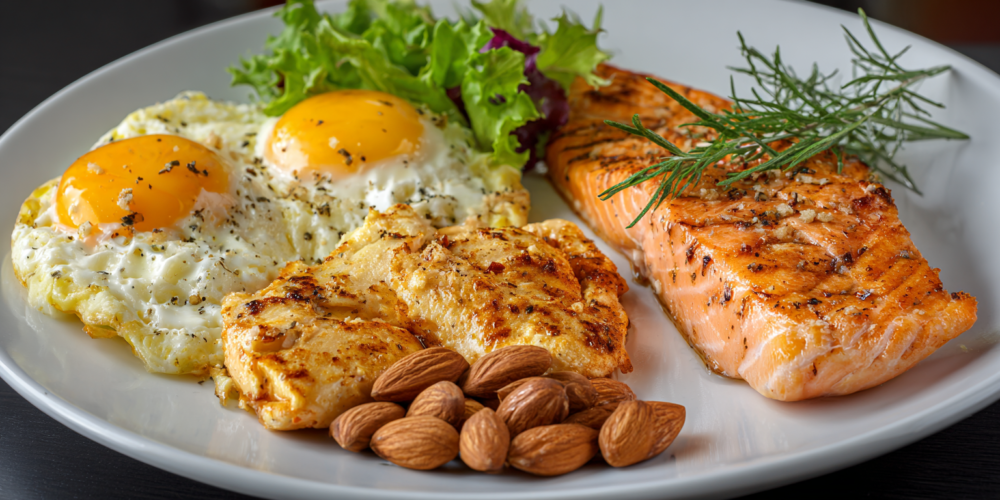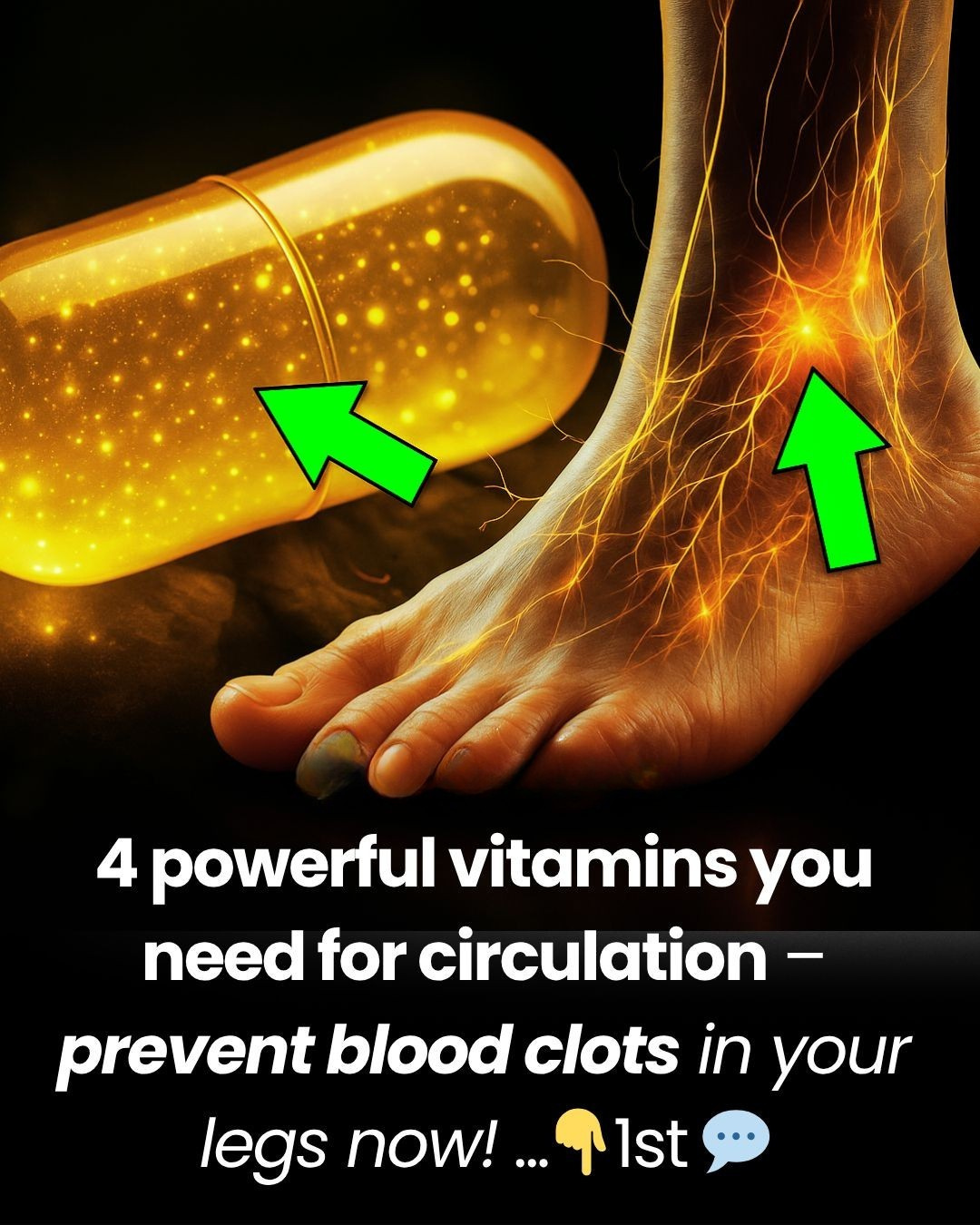Do your legs and feet often feel numb, cold, or heavy? Do you get cramps when walking or struggle with slow-healing wounds and bulging veins? These signs might point to more than just fatigue or aging — they can be signals of poor blood circulation.
Healthy circulation ensures that oxygen and nutrients reach your muscles, nerves, and skin. When blood flow is compromised, it can lead to varicose veins, tingling sensations, or even more serious issues like arterial blockages. The good news? Nutrition can play a powerful role in improving circulation — and four vitamins, in particular, can make a real difference.
5 Early Signs Your Circulation Might Be in Trouble

Before diving into solutions, let’s recognize the common warning signs that your blood isn’t flowing as it should:
- Persistent Numbness or Tingling
Frequent “pins and needles” in your feet or legs — especially after sitting or standing too long — may mean your nerves aren’t getting the oxygen they need. - Cold Feet, Even When It’s Warm
If your feet feel cold to the touch year-round, poor circulation could be limiting blood flow to your extremities. - Leg Cramps During Activity
Sharp pain or cramping when walking (especially in the calves) may signal intermittent claudication — a condition caused by narrowed arteries in the legs. - Skin Color Changes
Pale, bluish, or reddish skin — or dark patches around your ankles — could indicate damaged blood vessels or reduced oxygen in the tissues. - Visible Varicose or Spider Veins
Twisted, bulging veins near the surface of the skin suggest weakened vein walls or poor valve function, causing blood to pool instead of flowing smoothly.
Vitamins That Support Circulation and Vascular Health
Here are four scientifically supported vitamins that help protect and repair your blood vessels, support heart health, and promote better blood flow — especially in your legs.
1. Vitamin B3 (Niacin) – For Flexible, Clear Arteries

Vitamin B3, or niacin, is a superstar when it comes to circulation. It improves blood vessel flexibility and reduces cholesterol buildup in arteries — two key factors for healthy blood flow.
Niacin helps:
- Lower LDL (“bad”) cholesterol
- Raise HDL (“good”) cholesterol
- Reduce the risk of arterial plaque and clot formation
Good dietary sources of niacin include:
- Chicken breast
- Tuna and salmon
- Eggs
- Almonds
- Brown rice
Most adults need 14–16 mg daily — easily met through food. Supplementing with high-dose niacin should only be done under medical supervision, as it can affect liver function.
2. Vitamin C – The Vein Strengthener

Vitamin C isn’t just for immunity. It plays a crucial role in maintaining the integrity of your blood vessels by supporting collagen — the structural protein in artery and vein walls.
Do your legs and feet often feel numb, cold, or heavy? Do you get cramps when walking or struggle with slow-healing wounds and bulging veins? These signs might point to more than just fatigue or aging — they can be signals of poor blood circulation.
Healthy circulation ensures that oxygen and nutrients reach your muscles, nerves, and skin. When blood flow is compromised, it can lead to varicose veins, tingling sensations, or even more serious issues like arterial blockages. The good news? Nutrition can play a powerful role in improving circulation — and four vitamins, in particular, can make a real difference.
5 Early Signs Your Circulation Might Be in Trouble

Before diving into solutions, let’s recognize the common warning signs that your blood isn’t flowing as it should:
- Persistent Numbness or Tingling
Frequent “pins and needles” in your feet or legs — especially after sitting or standing too long — may mean your nerves aren’t getting the oxygen they need. - Cold Feet, Even When It’s Warm
If your feet feel cold to the touch year-round, poor circulation could be limiting blood flow to your extremities. - Leg Cramps During Activity
Sharp pain or cramping when walking (especially in the calves) may signal intermittent claudication — a condition caused by narrowed arteries in the legs. - Skin Color Changes
Pale, bluish, or reddish skin — or dark patches around your ankles — could indicate damaged blood vessels or reduced oxygen in the tissues. - Visible Varicose or Spider Veins
Twisted, bulging veins near the surface of the skin suggest weakened vein walls or poor valve function, causing blood to pool instead of flowing smoothly.
Vitamins That Support Circulation and Vascular Health
Here are four scientifically supported vitamins that help protect and repair your blood vessels, support heart health, and promote better blood flow — especially in your legs.
1. Vitamin B3 (Niacin) – For Flexible, Clear Arteries

Vitamin B3, or niacin, is a superstar when it comes to circulation. It improves blood vessel flexibility and reduces cholesterol buildup in arteries — two key factors for healthy blood flow.
Niacin helps:
- Lower LDL (“bad”) cholesterol
- Raise HDL (“good”) cholesterol
- Reduce the risk of arterial plaque and clot formation
Good dietary sources of niacin include:
- Chicken breast
- Tuna and salmon
- Eggs
- Almonds
- Brown rice
Most adults need 14–16 mg daily — easily met through food. Supplementing with high-dose niacin should only be done under medical supervision, as it can affect liver function.
2. Vitamin C – The Vein Strengthener

Vitamin C isn’t just for immunity. It plays a crucial role in maintaining the integrity of your blood vessels by supporting collagen — the structural protein in artery and vein walls.

